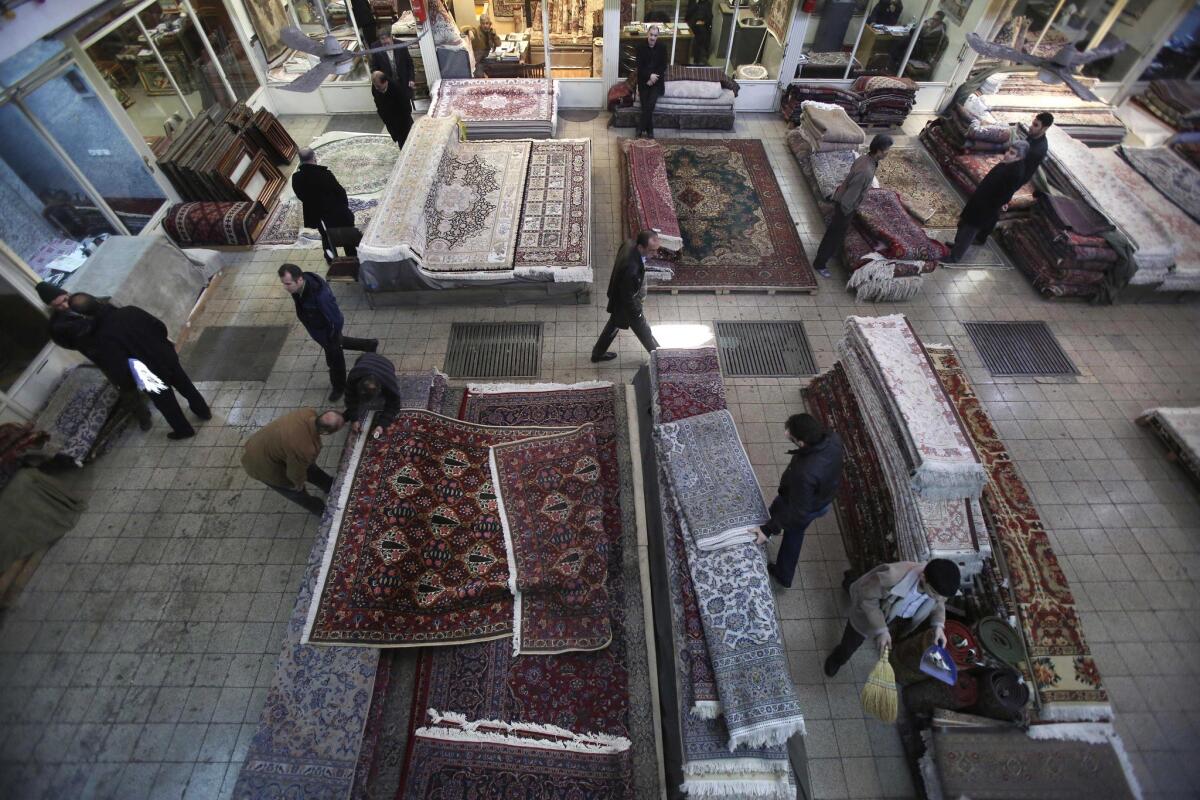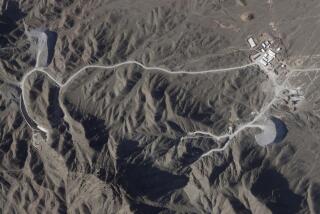Iranian nuclear talks watched in Tehran with anticipation, dread

In the heat of the Tehran summer, jeweler Ali Mosavi was anxiously scanning precious-metal and currency prices, worrying about what would happen if negotiators in Vienna failed to complete a deal on Iran’s nuclear program.
If talks collapse before the July 20 deadline, or are extended for months, metal and currency prices will jump, Mosavi said. And over the long term, all retail prices “will be soaring, God forbid,” he told a visitor to his shop.
As much of the world was obsessively following the soccer World Cup this month, Iranian businesspeople, investors and consumers have been studying the progress of the nuclear talks between Iran and world powers with a mixture of hope and dread.
Many are supporters of Iran’s reformist president, Hassan Rouhani, and remain confident that a long-awaited deal will ease punishing international sanctions and provide relief for the country’s battered middle class.
But they are also keenly aware -- as they read articles about the lack of progress in Vienna -- that failure or a long delay could damage Iran’s fragile recovery and sink their businesses.
The Iranian economy, which contracted in 2012 and 2013, is expected to grow slightly this year. The country’s inflation rate has fallen by about half, to about 20%, according to the International Monetary Fund.
But Supreme Leader Ayatollah Ali Khamenei is urging Iranians not to count on an easing of sanctions and to prepare to continue the economic war with the West.
A civil engineer named Nader, who asked that his last name not be used because of concerns for his safety, said he supports the nuclear negotiations and is optimistic that they will succeed.
Sipping tea in his office, he says his company has not been able to land new contracts for harbor and jetty projects.
If it takes another six months to reach a deal, he believes he can get by. But if a deal is not made within a year, “we would close down the company, and we would be practically jobless,” said Nader, 64. Without a surge of foreign currency into the economy, “there will be no financial support for our projects.”
Dr. Siavash Sadaat, the 60-year-old acting executive director of the Mina pharmaceutical manufacturer in Tehran, said Rouhani’s government has reduced the time it takes his imported raw materials to clear customs.
But the government has barred any price increases, and because of the sanctions, he said it takes him almost three weeks to get money to his foreign suppliers.
Without a deal, he fears there will be too much uncertainty for his business to survive.
“God forbid if the deal is not reached by July 20, or the talks fail,” he said.
Mohammadreza Sabsalipour, an economist with ties to the government, said the country’s leaders had made a mistake by raising expectations of a quick improvement in the economy that is not likely to occur.
If a deal is done, there is likely to be disappointment, he said. And if there is no deal, there will also be a blow to public confidence.
“A Damocles sword is waiting for the government in either case,” he said.
Special correspondent Mostaghim reported from Tehran and Times staff writer Richter from Vienna.
For foreign policy news, follow @richtpau on Twitter
More to Read
Start your day right
Sign up for Essential California for news, features and recommendations from the L.A. Times and beyond in your inbox six days a week.
You may occasionally receive promotional content from the Los Angeles Times.







